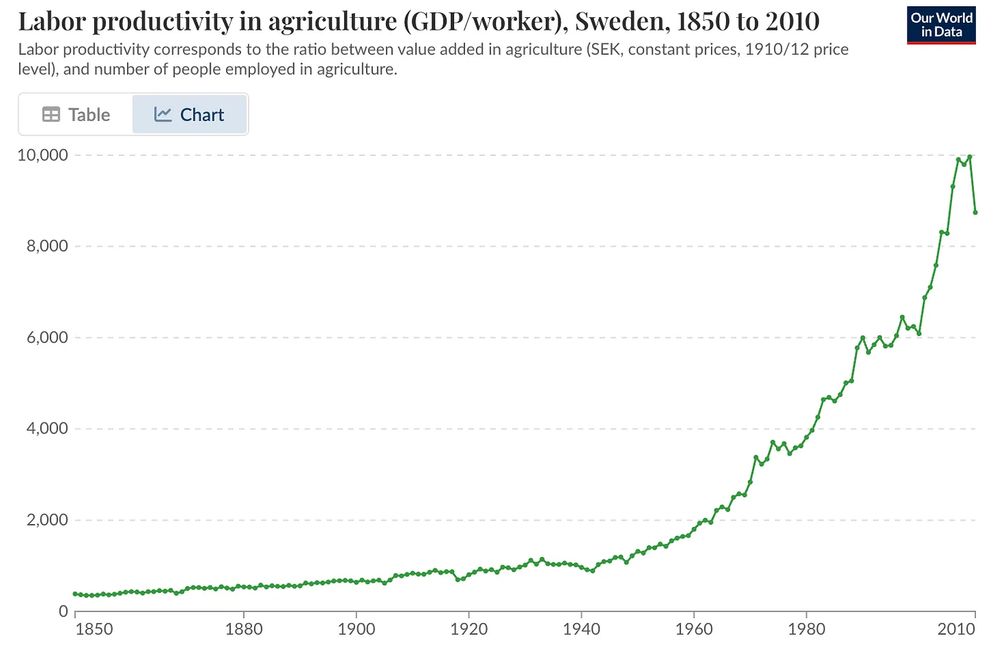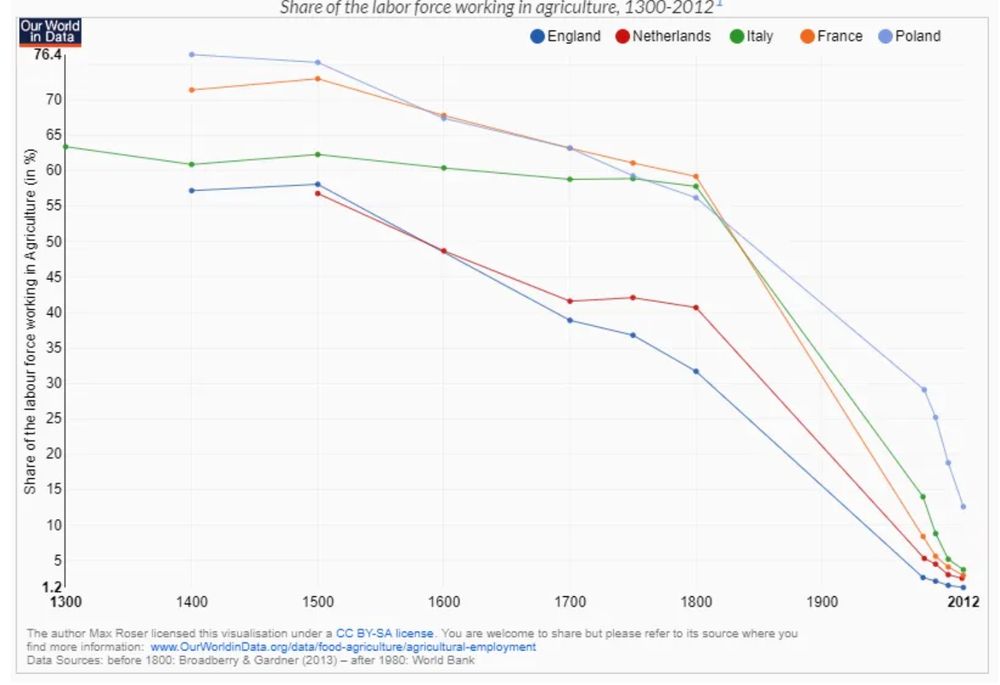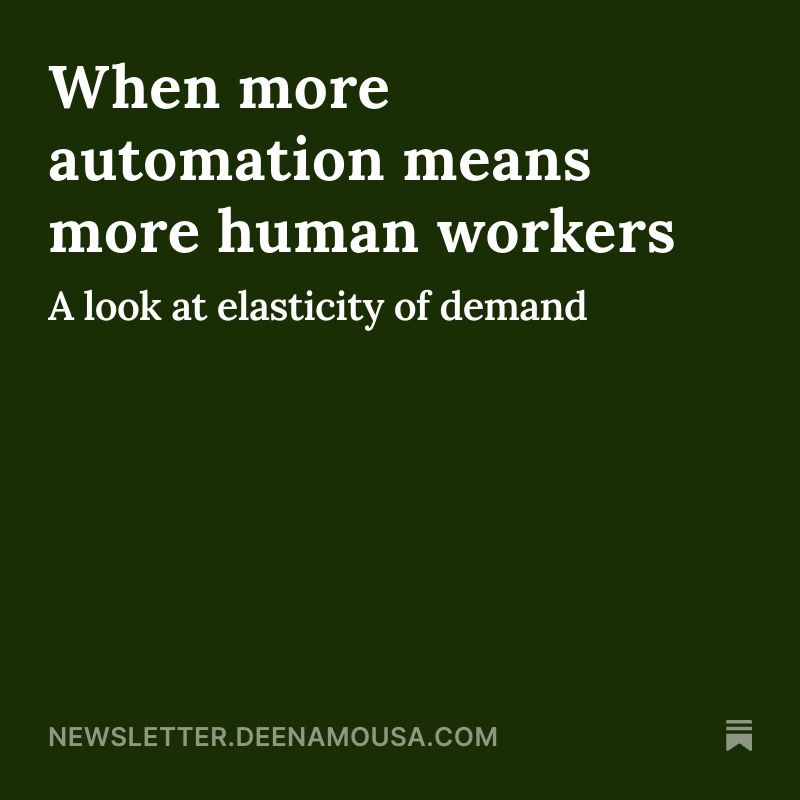
They also record data for the patient and facility over time.

They also record data for the patient and facility over time.
Will this oust the classic self-reported 1-10 scale?

Will this oust the classic self-reported 1-10 scale?
Worrisome sign that deskilling may happen a lot faster than we'd expect.

Worrisome sign that deskilling may happen a lot faster than we'd expect.
x.com/deenamousa/...

x.com/deenamousa/...


By reducing the cost of operating bank branches, ATMs made it possible for banks to open more locations.

By reducing the cost of operating bank branches, ATMs made it possible for banks to open more locations.
One argument I made in my recent @worksinprogress.bsky.social piece is that if automation made reading scans quicker and cheaper, this might result in *more* jobs for radiologists, rather than fewer.
How does this apply to other jobs? 🧵

One argument I made in my recent @worksinprogress.bsky.social piece is that if automation made reading scans quicker and cheaper, this might result in *more* jobs for radiologists, rather than fewer.
How does this apply to other jobs? 🧵
He was right: models have outperformed radiologists on benchmarks for ~a decade.
Yet radiology jobs are at record highs, with an average salary of $520k.
Why?

He was right: models have outperformed radiologists on benchmarks for ~a decade.
Yet radiology jobs are at record highs, with an average salary of $520k.
Why?
newsletter.deenamousa.com/p/how-much-...

newsletter.deenamousa.com/p/how-much-...
substack.com/home/post/p...

substack.com/home/post/p...

substack.com/home/post/p...

substack.com/home/post/p...
rabbitcavern.substack.com/p/did-cheet...

rabbitcavern.substack.com/p/did-cheet...

For example, Americans have been experiencing more chronic pain over time, and we're not entirely sure why 1/

For example, Americans have been experiencing more chronic pain over time, and we're not entirely sure why 1/
www.worksinprogress.news/p/heat-waves


www.worksinprogress.news/p/heat-waves


I write about why in a new post, linked below.

I write about why in a new post, linked below.


In Denmark, the average answer is $24,000. In Japan, it’s about $67,000.
New post up on what we say when asked to put a price on life. 🧵

In Denmark, the average answer is $24,000. In Japan, it’s about $67,000.
New post up on what we say when asked to put a price on life. 🧵
I wrote for @asimovpress.bsky.social about airborne biosensors that can detect viruses in real time and why, despite their promise, we’re not using them yet.

I wrote for @asimovpress.bsky.social about airborne biosensors that can detect viruses in real time and why, despite their promise, we’re not using them yet.



